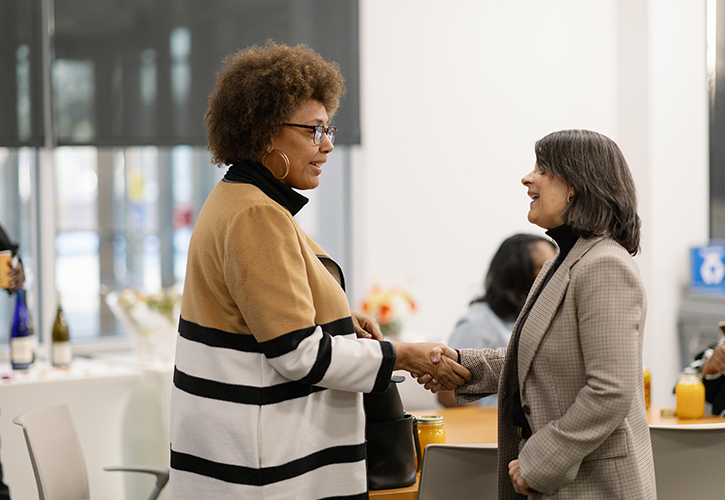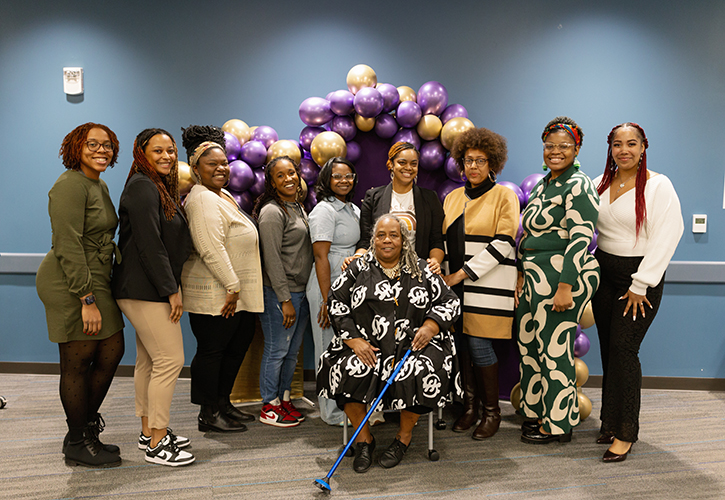College of Arts and Sciences Newsroom

UD doulas scholarships aim to address Black infant and maternal mortality
By Meagan Pant
The University of Dayton’s Health Equity Activation Think Tank will fund training and certification for 10 doulas in a new effort to address Black infant and maternal mortality in the community.
Certified doulas can bill Medicaid, increasing the number of women who can access their services.
“Doulas can improve health outcomes by educating, serving and advocating for women during pregnancy, delivery and into motherhood,” said Nancy McHugh, executive director of UD’s Fitz Center for Leadership in Community, which houses the think tank. “Our goal is to amplify their local impact as part of a broader effort to dismantle systemic barriers that stop people from realizing their full health potential because of their income, race, education, location or other factors."
Black women are significantly more likely to die in childbirth, experience preterm and cesarean births, and have lower breastfeeding and higher postpartum depression rates, according to research.
“Sometimes in labor and delivery, or in the doctor’s office, their voice isn’t being heard or they’re too tired, weak or stressed to be able to speak up,” said DeShae Jackson, a doula who will mentor the scholarship recipients. “I will advocate for them based on our relationship and what they have told me they want. Being certified by an agency that regulates the industry will potentially help doulas earn respect in healthcare settings.”
Anita Armstead is pursuing the certification to be a postpartum doula. As a farmer with a passion for herbal medicine and natural methods, she is drawn to doula work and learned of the opportunity through her previous involvement with the think tank.
“I realized as a Black mother who has her own story where I almost lost my child that I would like to do more,” said Armstead, who went on bedrest when she experienced a partial placental abruption.

Armstead said she did not have a doula when she had to be induced at 40 weeks.
“There were moments when my baby was showing signs of distress," she said. "I did not know how to ask questions and advocate for myself. I didn’t know some of the terms the doctors were using. All I could do was look at my phone and Google."
Armstead said if she was aware of the value of a doula at the time, she could have had an advocate when making life changing decisions. She said she is honored now to work alongside those addressing Black infant and maternal mortality rate in the community.
“The minds that are willing to come together and put resources, time, energy and love into this is very encouraging,” she said.
Slate, who also received a scholarship to pursue certification, agreed many women are not aware of doulas. “That’s part of the reason they’re not properly cared for. They always receive textbook care not based on their own pain, circumstances and experiences,” she said. “Bringing forth life takes a village of faith-filled people empowered by wisdom and grace.”
The Health Equity Activation Think Tank is funded through a three-year grant from the CareSource Foundation. The Dayton Foundation also supports the think tank work through the Del Mar Encore Fellows Initiative by funding Sharon Hawkins, a former nursing professor and community activist with a background in public policy and action, to direct HEATT.
For more information, visit the Fitz Center for Leadership in Community website.

